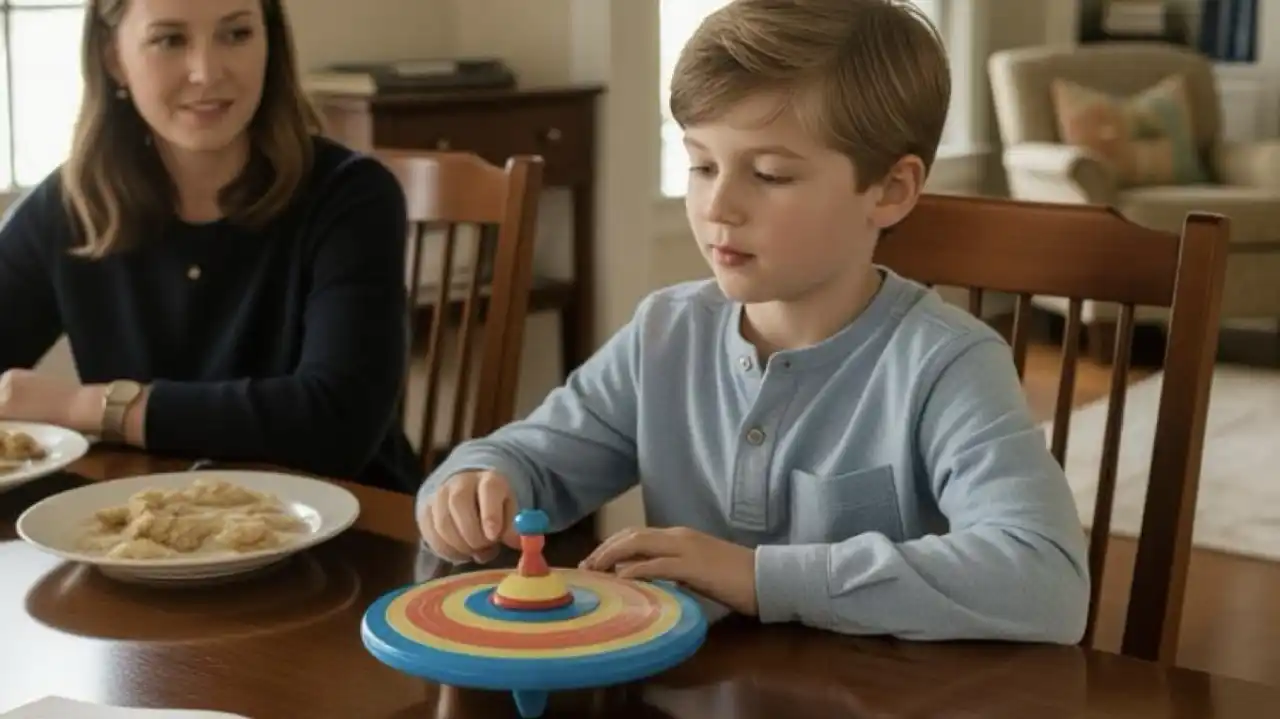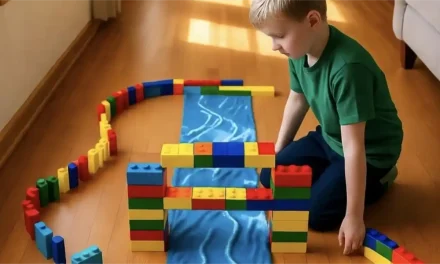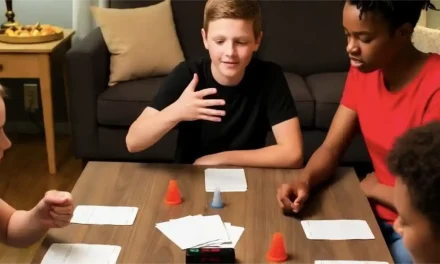
Cherishing Questions: Invite Their Whys
C
hildren rarely run out of questions—but their “whys” can easily get buried by the noise of daily life. When you pause and make space for those questions, even briefly, you send a clear message: their curiosity matters. A simple prompt like, “What’s on your mind tonight?” can open the door. Whether they’re wondering about toys, time, weather, or world events, what counts most is your willingness to listen—without rushing in with answers. Wonder doesn’t grow from quick solutions. It grows from being heard.
One morning, my son stared at a spinning top on the table. “What makes it spin so long?” I asked. He guessed it had a hidden motor and spun it again. “What else are you wondering?” I nudged. From that moment on, he started asking daily—about shadows, trees, toys, and headlines. Mealtimes became a space for shared puzzles. His joy didn’t come from getting the right answer. It came from the freedom to ask. Once that habit took root, it kept growing.
You can support this kind of questioning with a small daily ritual. At dinner or bedtime, try asking, “What did you wonder about today?” and let the conversation wander. For younger children, it might center on toys, bugs, or sounds; for teens, a story from the news or a debate in class. Revisit earlier questions from time to time—“Remember when you asked about the moon?”—to show you’re still thinking about them. These moments don’t need to be written down. Curiosity grows best when it’s welcomed often, and remembered with care.
Cherishing Questions

Cherishing Questions: Connect with Others
Friendships shape emotional growth. Help children develop meaningful connections that teach empathy, communication, and collaboration.

Cherishing Questions: Honor Their Asking
When children ask questions, they reveal their wonder. Respond with patience to build confidence, communication, and trust in their own thinking.

Cherishing Questions: Explore as Partners
Learn alongside your child. Shared exploration strengthens trust, curiosity, and emotional connection through meaningful experiences.
Table of contents

Primordial Soup for the Mind: Navigation
Navigate the book Primordial Soup for the Mind.
TIPS
- Listen warmly to spark joy.
- Invite whys to fuel curiosity.
- Track ideas to deepen their gaze.
ACTIVITIES
- Toy Query: Talk about a toy’s trait at dinner, listen to their thinking—10–15 min
- News Muse: Explore a teen’s question at home, invite their take—10–15 min
- Why Jot: Write one why in a journal, reflect on its spark—15–20 min
TOOLS
Question Journal, Why Chart

Download “Primordial Soup for the Mind: A Parent’s Guide to Nurturing Intellectual Growth”
Enter your information to get this article and hundreds more as part of the FREE book Primordial Soup for the Mind.
Share your thoughts with the Thought Academy community in the Comments section below.

Sharpen those skills!
Enter your information to get our FREE practice exercises so you can hone your critical thinking and reasoning skills!







0 Comments